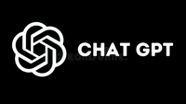|
|
|
|
|
|
|
|
|
Dear reader,
Welcome to The Director's Dilemma June 2024
It's end of financial year time in Australia and, if you have director development, board review, or training budget unspent, please read past the case study to find my special offer for readers.
Every month this newsletter looks at a real-life board scenario and considers a range of responses. The scenarios are de-identified to protect the individuals concerned. This month we consider how a chair can enhance board composition in an employee-owned business.
The scenarios in this newsletter are general, I work with boards and directors as a confidential mentor and provide director training and development, board performance reviews, and specialist training in writing board papers for executives. If you would like personalised service, please contact me.
To read this email in a web browser, go to www.mclellan.com.au/newsletter.html and click on 'read the latest issue'. I hope you will enjoy the latest dilemma:

Nico is Managing Director of a professional services consultancy that operates worldwide. The company has 30% female representation in the workforce, though its annual graduate intake has been around 50% for at least the past 20 years. There is only one female member on the 10-person board.
Nico is under pressure from clients, many of whom are government-owned, to improve the ratio but is unsure how to broach it with the board as, under the constitution, someone would have to step down before another woman could join. He's worried about tokenism, board skills, and the fact that there are no females in the most senior ranks from which board members are drawn.
He is also worried that, in spite of balanced recruitment, women have left before reaching the senior ranks. He fears there may be something toxic in the workplace that he can't see or fix because he doesn't recognise it.
More importantly, how can he get better female representation in senior ranks and on his board before it starts to lose business opportunities?
|
|
|
|
Heather's Answer

I think Nico has two separate issues that he needs to consider:
1. Board Equity
2. Senior Leadership and the lack of woman leaders within his business.
Regarding Nico's board, he needs to share this information with the board. If clients are placing pressure for change that could result in lost business opportunities, then the board should know.
Nico's Chairperson would be able to offer support and solutions in terms of succession. Some questions Nico needs to think about include: Is the board skills based? If not, how can he begin to reform the board based on skills? Why are senior leaders from within the business being recruited to the board? Can board members be from outside the business? Governance boards should not be filled with internal people as this impacts good governance and creates strong bias.
About the lack of women in senior roles, I think Nico is right there's a cultural problem. If he has gender balance at intake, then something is happening internally in the development of women's careers within his company. Does Nico's company conduct exit interviews? An exit interview would give him a clearer view of the problem and potential solutions. The board would and should be interested if there is a culture problem, given they are the company's lead on its culture.
As Managing Director Nico has the right to ask for support from his board to ensure they are working towards equality on the board and to uncover the reason and potential solutions to include more women in his leadership team.
Heather Disher is an experienced chair, non-executive director, advisor and business owner based in Melbourne, Australia. Her board experience includes Pony Club Australia, Geelong Animal Welfare Society, Terima Kasih Holdings, and Highett Community Financial Services.
|
|
|
|
Julie's Answer

Nico needs to lead.
He should first look at his company constitution and understand the rules for appointing directors. Then he should have a chat with his chair about what needs to change and why. Similarly, he should talk with his HR leader and develop a retention strategy to prevent the haemorrhage of good women from his ranks.
Ideally, he could lead the board to recommend shareholders adopt a constitution change so that external directors can be appointed to the board. They would also need to decide whether to increase board size by adding independent directors to the ten executive directors, or to reduce board size in keeping with modern governance norms.
Then Nico needs to consider the skills matrix, what skills to retain from the executive directors and what skills to add to generate additional value and insights.
It is likely that his shareholders will initially want to retain a majority of executive directors and only be comfortable moving to a majority independent board after some time and success.
Whilst he is looking at modernising his constitution, he should consider instituting review, training, term and tenure arrangements to ensure that the board skills can be kept fresh and relevant in future.
It is always hard to ask a director to stand aside but good directors know that they serve the company's interests, not their own, and if asked to leave in a respectful manner, they will likely do so. He shouldn't waste any time in making his requests.
Julie Garland McLellan is an experienced non-executive director and board advisor based in Sydney, Australia.
|
|
|
|
Sandra's Answer

This is a common challenge faced by many companies: on one hand, the push for modernization and adherence to ethical standards necessitates greater representation of women on boards; on the other hand, existing company culture may be resistant to such changes.
Unfortunately, these issues cannot be resolved overnight. A substantial shift in the organization's culture is necessary. This involves addressing critical questions: Why are there so few leadership roles held by women? Is the company culture truly inclusive? Without inclusivity, the company risks alienating customers who prefer to support businesses that align with their values.
Implementing such a transition effectively is a substantial undertaking that will likely take between three to five years. This period is necessary to avoid superficial compliance and instead achieve meaningful change. It is advisable that during this time, the board, which periodically renews its directors, uses these opportunities to conduct a thorough Board Assessment. This assessment should aim to identify which members might need to step down, ensuring that the board's composition aligns with the broader goals of diversity and inclusion.
Concurrently, the company should undertake a professional Board Search to find suitable replacements for those stepping down, focusing on candidates who can bring diverse perspectives and experiences to the board. This search should be rigorous and tailored to meet the specific needs of the company while advancing its commitment to diversity.
In parallel, it would be beneficial for the company to undertake a deep analysis of its internal culture to pinpoint the gaps and barriers that prevent women from advancing within the organization. Identifying these issues is the first step; the subsequent one involves developing and implementing strategies to close these gaps, thereby fostering an environment where women can thrive and lead.
Overall, this comprehensive process is expected to take between three to five years to accomplish. It requires careful planning, sustained effort, and a genuine commitment to transforming the corporate culture into one that values and promotes diversity at all levels. This not only enhances the company's ethical standing but also strengthens its appeal to a broader base of customers and stakeholders.
Sandra Olive is Managing Partner of Backer & Partners, Chair of Group 244 Vistage Worldwide, and board member of AESC Council of the Americas. She is based in Buenos Aires, Argentina.
|
|
|
|
Chat GPT's Answer

Nico faces the challenge of improving gender diversity within the company, particularly in senior leadership and board positions. To address this, several key steps are recommended.
Firstly, fostering an inclusive culture is crucial. Creating an environment where all employees feel valued and respected regardless of gender is essential for retaining and advancing female talent. Conducting a thorough assessment to understand why women are leaving before reaching senior ranks is necessary. This involves investigating potential issues such as biases, unequal opportunities, or a toxic work environment.
Implementing targeted initiatives is also important. Developing programs and policies to support the career progression of women, such as mentorship programs and flexible work arrangements, can help address barriers to advancement. Additionally, leading by example and promoting gender diversity at all levels of the organization demonstrates commitment to change.
Addressing board composition is a critical step. Initiating discussions with the board about the importance of gender diversity and exploring options for board succession planning can facilitate the appointment of female board members. Collaboration with stakeholders, including clients and industry partners, can also garner support for diversity initiatives and highlight the business benefits of a diverse workforce.
Finally, continuous evaluation and adjustment are necessary. Monitoring the effectiveness of diversity initiatives, soliciting feedback, and holding the organization accountable for achieving diversity goals ensures progress is made and sustained over time.
By taking proactive measures to address gender diversity, Nico can not only improve representation in senior roles and on the board but also enhance business opportunities and foster a more inclusive and successful organization.
Chat GPT is an artificial intelligence (or a pattern recognition, data analysis, and prediction engine). It resides in Cyberspace.
End of financial year, do I have an offer for you?
Of course!
To thank you for being a subscriber I have reserved a 15% discount for you on all board reviews, director training and development, and in-house deliveries of my "Writing Better Board Papers" training.
Simply book your preferred service and pay a deposit before 30 June and your discount will be applied.
If you have unused budget allocation from this year, or would like to plan ahead for next year, this offer will help you to access the service you need at a price you can't beat.
To book just call me on +61 411 262 470.
Masterclass on Writing Better Board Papers
The next scheduled deliveries are:
7 June, Sydney - book at
https://www.eventbrite.com/e/writing-better-board-papers-sydney-7-june-2024-tickets-888079779527
8 August, Melbourne - book at
https://www.eventbrite.com.au/e/writing-better-board-papers-melbourne-8-august-2024-tickets-781201654177
12 September, Sydney - book at
https://www.eventbrite.com.au/e/writing-better-board-papers-sydney-12-september-2024-tickets-871383199607
If you would prefer an in-house workshop for your executive team, please reply to this email and I will gladly schedule one for you.
|
|
|
|
Book review - That's a Great Question by Greg Bustin

Directors need to ask good questions.
Penetrating but not threatening.
Insightful without sidetracking.
This book contains an excellent set of questions for a range of different purposes together with some nice philosophies on how and when to best use different types of question. I would have welcomed a bit more academic depth but, hey, I'm a nerd.
The book is engaging and easy to assimilate. It left me thinking about questions for several weeks after reading and I did try a couple of questions from the lists that populate the book during my director mentoring and board meetings. We can never get too good at asking questions!
Available at Amazon.com
Board reviews - Every board - just like every other team - needs to measure its performance if it hopes to improve. When your board next needs to conduct a performance evaluation or a governance review, please remember that I would be delighted to help. You can contact me at julie@mclellan.com.au.
Inspirational quote for June

A note on names - A few readers have asked me where I find the names for the protagonists in each case study; I 'borrow' them from people I meet or things that I read. The name Nico is of Italian origin and is a shortened version of the Greek name Nicholas. The meaning of this name is "victory of the people". Nico needs to start to lead his board and management team towards victory. It takes more than just running successful projects, he needs to demonstrate leadership.
Video resources - I post short video insights on LinkedIn. They disappear after a few days. You might like to visit (and please subscribe to) my YouTube channel to see the videos whenever you want to watch them. Let me know if there are any topics you would like to see addressed.
This newsletter - If you have any ideas for improving the newsletter please let me know. If you are reading a forwarded copy, please visit my website and sign up for your own subscription.
Suggestions for dilemmas - Thank you to all the readers who have suggested dilemmas. They are greatly appreciated. I will answer them all eventually. I could not write this newsletter without your help and without the generous help of all the experts who respond each month to the case studies.
Be a contributor - if you would like to attempt a response to the dilemmas for publication you will be most welcome. Simply reply to this email and let me know. I am always on the lookout for new talent from around the world so please reach out if that sounds like something you could do. I am also always grateful for the generous sharing of the current and past contributors. I couldn't create such an engaging newsletter without their help.
Spread the word - if you have read this far, I assume you enjoy the newsletter – please help me to reach more directors by sharing the newsletter with your board colleagues and suggesting that they also become subscribers or by posting a recommendation on my LinkedIn page to let others know that you find the newsletter valuable.
Let's connect - I use LinkedIn to share information about boards and directorship with my friends and acquaintances. If you use LinkedIn and we are not yet connected I will welcome a connection from you. You can find me at linkedin.com/in/juliegarlandmclellan.
Farewell until the next issue due 1 July 2024. I look forward to greeting you again then.
Enjoy governing your companies, it is a privilege!
Best regards,
Julie

Main photo by Taiwan Corporate Governance Association (and yes, that is me!)
Quote Illustration by Julie Garland McLellan using a photo by Sebastian Sorenson from Pexels.com
Disclaimer: The opinions expressed above are general in nature and are designed to help you to develop your judgement as a director. They are not a definitive legal ruling and do not constitute legal advice. Names and some circumstances in the case study have been changed to ensure anonymity. Contributors to this newsletter comment in the context of their own jurisdiction; readers should check their local laws and regulations as they may be very different.
Privacy: I am privileged to have your contact details and keep them as safely as possible. I will alert you if they are ever accessed by any unauthorised person. The technical staff at ayuda help with publishing and issuing the Director's Dilemma and have access so they can send the newsletters to you. I do not sell your details to anyone; they are kept only for the intended purpose - sending you this newsletter and helping to build the judgement of company directors by providing a safe way to consider potential responses to real life events.
|
|
|
|
|
|
|








